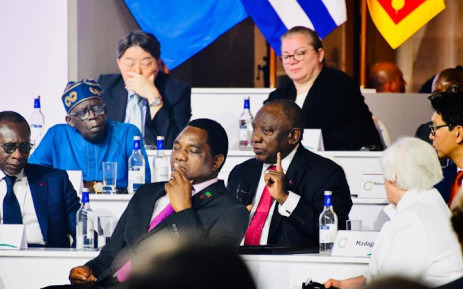In recent statements, President Cyril Ramaphosa emphasized the importance of securing funds to support South Africa’s Just Energy Transition. He echoed his sentiments expressed at the global summit on financing development and climate action in Paris, stressing that Africa should not be seen as mere beggars seeking charity. Recognizing the historical imbalances between the global north and the global south, Ramaphosa called upon wealthier nations to fulfill their obligation of supporting climate action in less privileged countries. This article explores the significance of raising funds for South Africa’s Just Energy Transition, its potential to end load shedding, and its role in driving economic growth.
The Need for Funding and Global Cooperation: President Ramaphosa highlighted that the industrialization of the global north has come at the expense of the global south. Therefore, it is imperative for wealthier nations to contribute financial resources to support climate action in developing countries. By collaborating with other countries, South Africa aims to assert the needs and interests of developing nations while achieving its objectives. International development banks must also undergo reform to ensure that funding is directed towards areas where it can have the greatest impact.
Strengthening the Electricity Grid and Renewable Energy Generation: Increased funding will enable South Africa to invest in enhancing the resilience and reliability of its electricity grid. By modernizing infrastructure and incorporating new technologies, the country can overcome the challenge of load shedding. Furthermore, additional resources will facilitate the expansion of renewable energy generation, reducing dependency on fossil fuels and promoting a sustainable energy future.
Economic Growth and Employment Opportunities: President Ramaphosa emphasized that a more dependable and affordable electricity supply will stimulate economic growth. Industries heavily reliant on electricity, such as manufacturing and mining, will experience increased productivity and competitiveness. The availability of reliable power will attract foreign investment and create job opportunities, contributing to the overall socioeconomic development of the country.
Advancing New Industries: With increased funding, South Africa can develop emerging industries in line with the Just Energy Transition. For instance, investment in electric vehicles and green hydrogen technologies will foster innovation, reduce carbon emissions, and position the country as a global leader in the green economy. Such developments will not only contribute to the mitigation of climate change but also stimulate job creation and export opportunities.
South Africa’s Just Energy Transition is a vital endeavor that requires substantial funding to achieve its objectives. President Cyril Ramaphosa’s call for financial support from wealthier nations reflects the historical imbalances between the global north and south. By securing funds, South Africa can strengthen its electricity grid, expand renewable energy generation, and promote economic growth. Moreover, the transition presents opportunities to develop new industries and create employment. Through international cooperation and the reform of development banks, a sustainable and equitable future can be pursued, benefiting both South Africa and the global community. It is essential that government efforts continue to implement energy action and economic recovery plans to eliminate load shedding, foster economic growth, and generate employment opportunities.
In conclusion, South Africa’s Just Energy Transition holds the key to a sustainable and prosperous future. President Cyril Ramaphosa’s advocacy for funding reflects the country’s determination to break free from historical inequalities and address climate change with the support of wealthier nations. By securing financial resources, South Africa can fortify its electricity grid, expand renewable energy generation, and foster economic growth. Additionally, the transition presents an opportunity to nurture emerging industries such as electric vehicles and green hydrogen, which will not only reduce carbon emissions but also create employment opportunities and bolster the country’s competitiveness on the global stage.
It is imperative for the government to continue working closely with other nations and international development banks to ensure that funds are directed where they can make the greatest impact. Reforms within these institutions will play a crucial role in facilitating the flow of resources to developing countries and supporting their climate action efforts.
South Africa’s commitment to implementing energy action and economic recovery plans is commendable. By eliminating load shedding, fostering economic growth, and generating employment opportunities, the country can improve the lives of its citizens and contribute to sustainable development.
As we navigate the challenges of a rapidly changing climate, South Africa’s Just Energy Transition serves as a beacon of hope. It exemplifies the need for global collaboration, financial support, and the pursuit of equitable development. By embracing renewable energy and adopting environmentally friendly practices, South Africa can pave the way for a greener, more resilient future that benefits not only its own people but also the global community as a whole. The time to act is now, and with continued determination, South Africa can lead the way towards a more sustainable and prosperous tomorrow.









